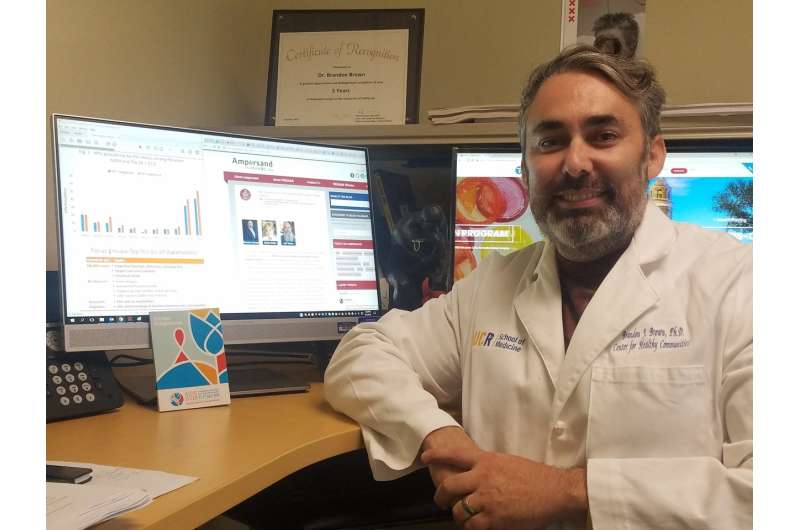Study links individual HPV types to HIV infection

An international research team led by a scientist at the University of California, Riverside, has for the first time identified individual types of the human papillomavirus, or HPV, that are specifically linked to HIV infection.
The study, published in the journal PLOS ONE, concludes that a person with any HPV type, more than one HPV type, or high-risk HPV is more likely to acquire HIV.
The study found the following HPV types are linked to HIV: HPV16, 18, 31, 33, 35, 52, 58.
"Although most studies have shown a general link between HPV and HIV co-infection, our findings illustrate the strong relationship between individual HPV types and HIV infection," said Brandon Brown, an HIV researcher and associate professor in the UCR School of Medicine and the lead author of the study. "Some HPV types are more linked to cancer and others to warts. This further illustrates the potential utility of HPV vaccine for men who have sex with men and trans women, not only for HPV prevention but also possibly for HIV prevention."
Brown explained that previous research has shown that HPV, in general, was linked to HIV infection, but his research team looked at infection with 37 HPV types and found that individual types are linked, "which is more specific than saying HPV is linked."
The study investigated the relationship between HPV types and incident HIV infection among men who have sex with men, or MSM, and transgender women in Lima, Peru. The study had 600 participants recruited at a local community-based health center, bars, clubs, volleyball courts, and via social media. Brown and his colleagues started with two groups, one with genital warts and one without, and followed participants over two years to see who contracted HIV. Of the 571 participants who completed at least two study visits, 73 acquired HIV in two years—a 6 percent HIV incidence rate.
Brown has been working in Peru for more than 10 years and has conducted preliminary work on HPV vaccine acceptability in MSM. In his previous work with female sex workers, he found that the HPV vaccine still provided protection to high-risk groups.
"In working with a community-based organization in Peru, we learned that genital warts were highly prevalent among their clients, and with a high HIV burden," he said. "So, we worked with community organizations to develop this cohort study including genital warts and HIV."
According to Brown, the results of the study are "absolutely applicable beyond Peru, and synergize with recent results of studies outside Peru."
"The fact that our study took place in Peru is irrelevant," he said. "It was simply convenient to do it there with our strong community connections and a high interest in this research. Our results are applicable to the U.S., for example, where strong links between individual HPV types and incident HIV infection exist."
Regarding prevention and treatment, Brown recommends the HPV vaccine, widely provided to everyone—regardless of sex, gender, or sexual orientation—before sexual debut, and genital wart treatment.
"Even if the vaccine is not provided before sexual debut, there can be strong benefit if given at any time to prevent HPV-associated disease and also HIV," he said. "We know that HPV is the most common STI, and we know that HPV vaccine works to prevent chronic HPV infection. What we need now is to implement the vaccine in a better way. The uptake in the U.S. is lower than other vaccines, and the availability in many other developing countries is low at best and absent at worst."
More information: Brandon Brown et al, The relationship between anogenital HPV types and incident HIV infection among men who have sex with men and transgender women in Lima, Peru: Findings from a prospective cohort study, PLOS ONE (2018). DOI: 10.1371/journal.pone.0204996




















